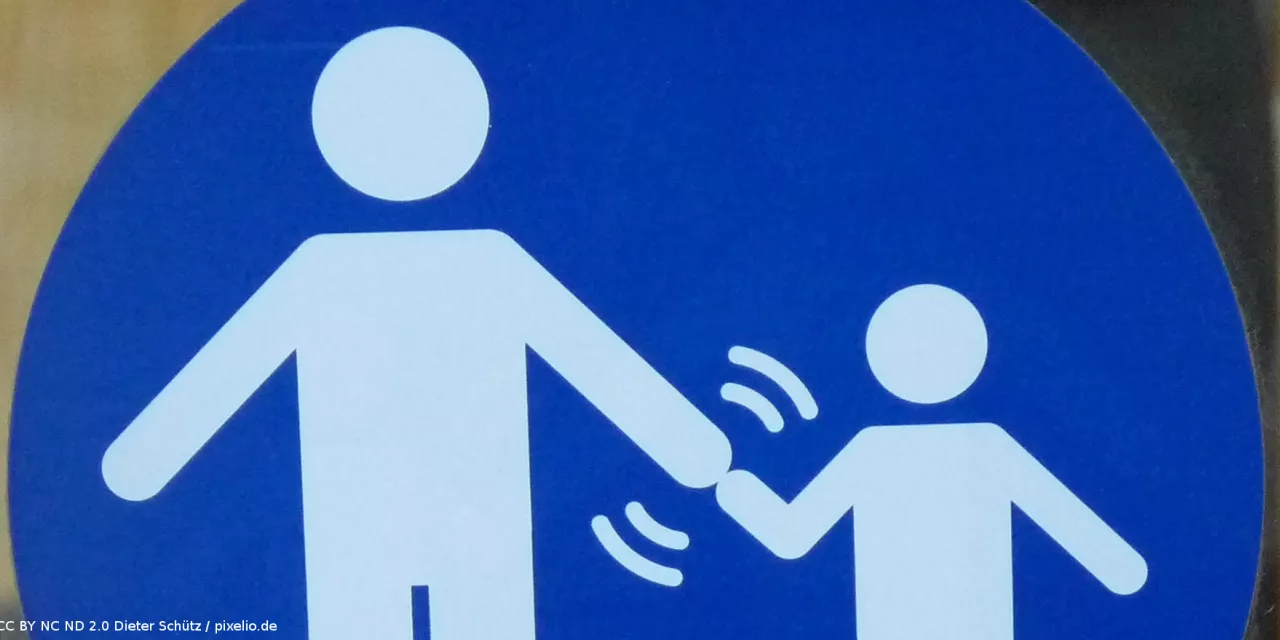The Big Brother Award in the "Communications" Category goes to Armex Ltd. company from Gladbeck for their "Track Your Kid" product - as a representative of several companies that offer child monitoring services.
Nobody would consider putting their child on a leash. The same thing in electronic form doesn't seem to trouble many people, though - otherwise companies such as Armex Ltd. could not make money from concerned parents.
Track Your Kid makes use of the locating services made possible by today's mobile phone networks. By measuring distances to transmitters, the current position of a mobile phone can be determined with a margin of error far below 100 metres.
Armex, as a supplier of a so-called "value-added service", uses this feature to enable parents to locate their mobile-carrying children, or rather their children's mobiles, at any time. The role played by Armex is not unlike that of a detective agency: parents send a query message by SMS and receive an SMS response containing the mobile phone's position. The mobile phone operator will pass on location data to Armex after receiving a signed order from the parents.
If the enthusiastic praise that "Track Your Kid" and similar products are receiving on the media and parenting websites is to be believed, this idea is a perfect match with many parents' wishes.
On second thoughts, considerable doubt is creeping in.
1. Is there a need?
What good does it do if I can know when my child is going to an "undesirable" neighbourhood? Could I actually do anything in the worst-case scenario of an abduction? Wouldn't we immediately expect an abductor to throw the mobile into a waste bin - or a child do the same, if it was going to run away?
What do parents actually intend to do with the news, gained by "tracking down" their "eloper", that he or she strayed from the usual path? Hold a punitive sermon? Call the police? Will Mom leave her work each time to deliver a speech "on location"?
Questions like these don't meet with much approval from parents. It's often taken as granted that the child's welfare comes before everything else - even before its right to a personal space. "With Track Your Kid you have everything under control", promises provider Armex. Exactly there lies the mistake. What seems like a security gain for the child is more like a purchase of self-assurance for struggling parents.
And data protection and the right to informational self-determination are not "adult rights" that can be withheld from children, even by their legal guardians. Speaking of legal issues, from the age of 14 the child's consent is required for the tracking of its mobile phone, as data protection experts have pointed out clearly.
2. Abuse is possible
The jury is appalled by the naive attitude with which Armex are trying to comply with the letter, if not the spirit of privacy regulations. On a closer look, the measures deter potential criminals by nothing more than a raised finger of warning.
When issuing an order to Armex, customers are actually required to prove with a copied receipt that they "own" the telephone number to be tracked. But this question is not asked in the online order form. A signature under a simple declaration of ownership seems to be enough for Armex.
Also, experience shows that a spouse or partner will have few problems faxing your mobile phone contract off to Armex in secret.
And there is a very simple way to get anyone's mobile tracked, with just a small amount of criminal energy:
What Armex is actually tracking is not the mobile phone itself but the SIM card inserted into it. This card is where the telephone number is stored, the surrounding phone can always be replaced. With only a little imagination it is easy to come up with a scenario where SIM cards are smuggled into victims' mobiles at least temporarily, in order to track them during that time.
The relationship between employer and employee makes such a trick even easier. Company mobiles are ordered, maintained and administrated by the company. It is then so much simpler to make monitoring the inefficient field worker, or the troublesome union representative, a reality.
3. And "normal" use is abuse, too
Despite all sympathy to parents concerned for their children's wellbeing: Bringing up a kid includes the task of preparing them for a life of self-determination, and teaching them values of a liberal society. Will this society be able to understand personal freedom as a vital value, and defend it, if a majority of its members has been accustomed with constant monitoring from an early age? (This has been termed "surveillance socialisation" by the TAZ newspaper.) How can a person brought up this way grasp that human, socially compatible behaviour is best based on insight - not on the fear that any misbehaviour might be uncovered by permanent surveillance? Schemes like Track Your Kid breed incapacitated people who never take responsibility for their own behaviour.
Parents should think twice before adapting their kids to a normality of constant surveillance, for the imagined benefit of a little extra security.
In any case, the jury is hoping that kids will outsmart their parents and discover the relevance of that little button with which the "electronic shackle" can just be switched off. After all, a device that does not send any signal can not be located.
Congratulations, Armex Ltd.!
Laudator.in





